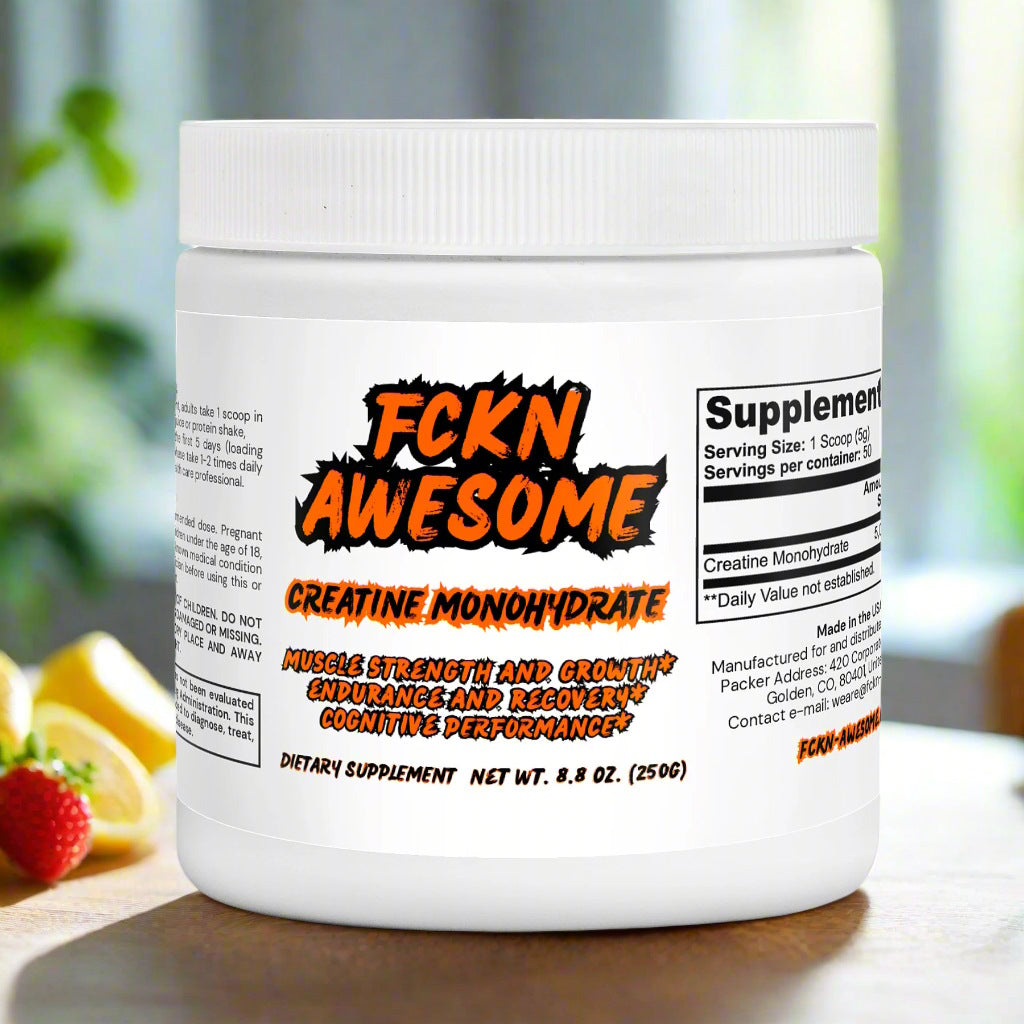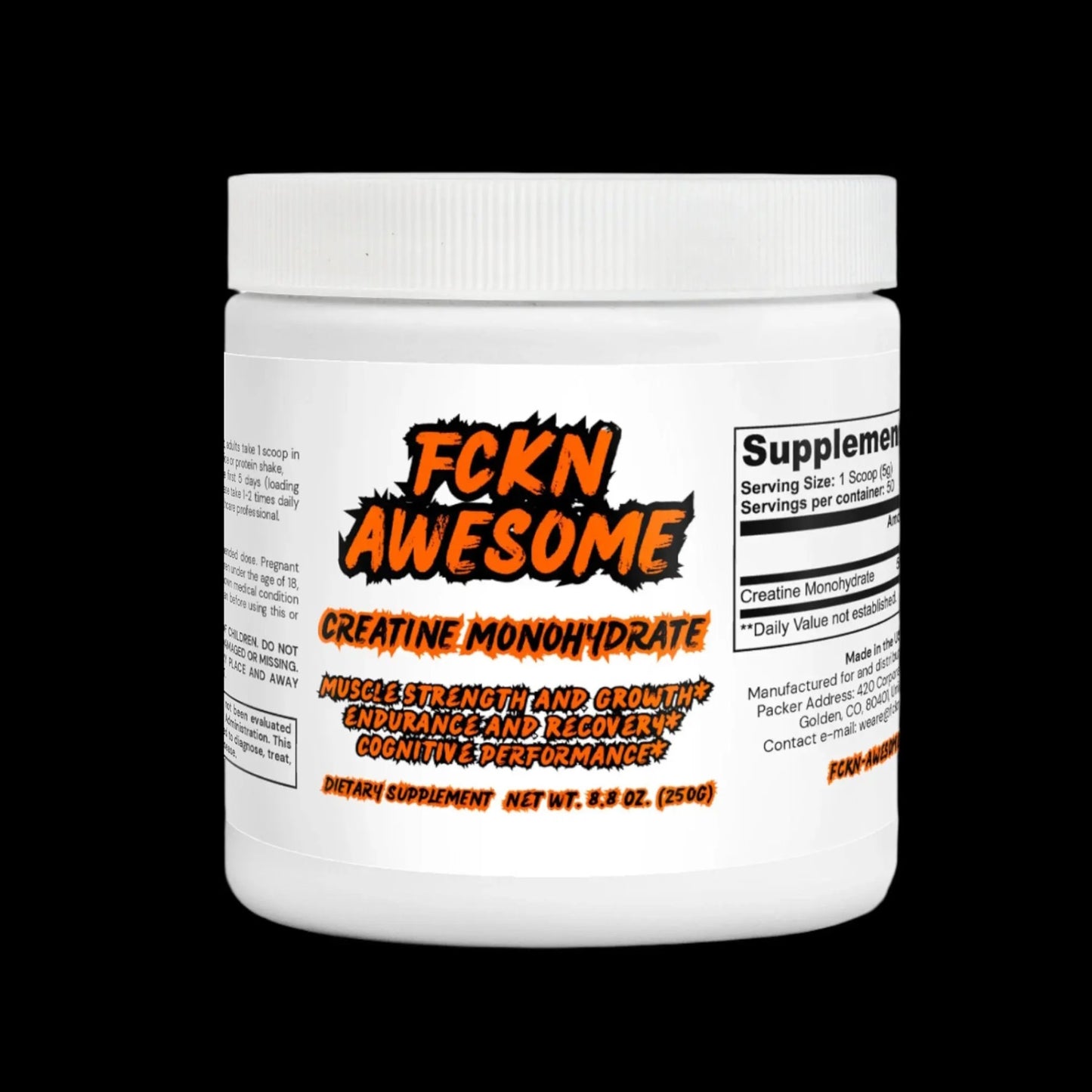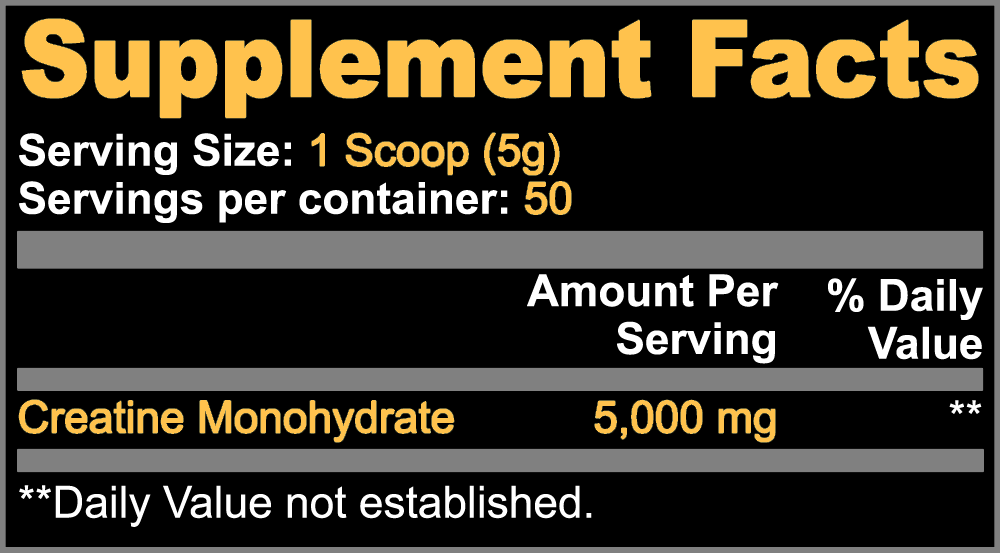
🔬Creatine: The Science-Based Benefits
Share
Creatine stands as one of the most extensively researched supplements in the world of sports and health, with powerful, science-based benefits that extend far beyond the gym.
From enhancing muscle strength and growth to supporting brain health and accelerating recovery, creatine is a versatile tool for optimizing human performance.
This guide will explore the science behind creatine’s effects, covering its role in physical performance, recovery, and even cognitive function. Whether you’re an elite athlete, a fitness enthusiast, or simply seeking to improve your overall well-being, the evidence is clear: creatine has something to offer.
How Does Creatine Work? The Energy Engine
At its core, creatine helps your body generate energy more efficiently.
Its primary role is to increase the stores of phosphocreatine in your muscles. Phosphocreatine is used to rapidly produce adenosine triphosphate (ATP), the body's main energy currency.
During short, intense bursts of activity—like lifting a heavy weight or sprinting—your body burns through ATP quickly. By having more phosphocreatine available, you can regenerate ATP faster, allowing you to perform more work before fatigue sets in.
This same energy-boosting principle applies to your brain, an incredibly demanding organ that also relies on a steady supply of ATP to power cognitive functions.

💪 Muscle Strength & Growth
Creatine enhances muscle strength and growth primarily by increasing ATP levels (the main energy molecule), allowing for improved performance and greater training capacity.
Additionally, creatine increases muscle cell hydration, giving muscles a fuller look and creating an environment favorable for muscle growth and recovery.
💪 Muscle Strength
- "...Creatine supplementation facilitates more significant improvements in strength and fat-free mass...provides positive benefits to both males and females, athletes and recreational fitness enthusiasts, as well as younger and older individuals" [1]
- "After supplementation, the maximal strength in the creatine group significantly increased..." [2]
- "There is substantial evidence to indicate that a low-dose, short-term oral Creatine supplementation beneficially affected muscle power output in elite youth soccer players." [3]
- "These results support a number of earlier studies that demonstrated that creatine supplementation at low doses and without the use of the loading phase are effective for increasing maximal strength and endurance of upper limbs." [4]
💪 Muscle Growth
- A 2022 review of 16 randomized controlled trials has concluded: "Overall, creatine is an efficient form of supplementation for muscle growth in the healthy young population with adequate training in a variety of dosage strategies and athletic activities." [5]
- Another 2 systematic reviews and meta-analysis have also concluded creatine's efficiency in improving muscle growth, both in younger and older adults. [6, 7]

Meta-analysis of the Efficacy of Creatine supplementation combined with resistance training on Muscle Hypertrophy (adapted from Burke, R. et al., 2023)
🔝 Height
- What's also interesting is that a study of 4291 participants, aged 2 to 19 years, who provided valid dietary information and examination measure, have shown that: "Each additional 0.1 g of creatine consumed per day increases height by 0.60 cm (simple model) or 0.30 cm (adjusted model). The daily intake of creatine from a regular diet in taller children and adolescents was higher than in shorter peers aged 2–19 years." [8]
⚡ Endurance & 🔋 Recovery
⚡ Endurance
Creatine can enhance endurance by 3 main mechanisms:
- supporting ATP production [9, 10],
- increasing muscle glycogen stores [11, 12],
- improving hydration [13, 14] and thermoregulation [15].
"...Overall, creatine supplementation increases time to exhaustion during high-intensity endurance activities...creatine supplementation appears to be more effective at improving performances that require multiple surges in intensity and/or during end spurts, which are often key race-defining moments...creatine supplementation may be beneficial for sports, such as cross-country skiing, mountain biking, cycling, triathlon, and for short-duration events where end-spurts are critical for performance, such as rowing, kayaking, and track cycling." [16]
However, if the efficiency of creatine on muscle strength and growth is significant and clear, other meta-analysis has questioned creatine's efficiency for endurance in well-trained athletes. [17]
If you want to improve your endurance — buy also Coffee with Lion's Mane & Chaga, Ashwagandha, and Pre-Workout — they can significantly enhance endurance.
🔋 Recovery
Creatine can also help reduce muscle damage and soreness, enabling quicker recovery between sessions, as well as between reps and sets during training sessions. [1]
- "Creatine supplementation may enhance recovery from intense exercise..." [1]
- "...These findings demonstrate creatine monohydrate-mediated accelerated recovery from exercise-induced muscle damage..." [18]
- "...The current data indicate that creatine consumption is better than rest after diverse forms of damaging and exhaustive exercise or passive recovery. The benefits relate to a decrease in muscle damage indices and improved muscle function because of muscle power loss after exercise." [19]
🧠 Brain Health, Focus & Memory
Creatine supports brain and cognitive health by increasing ATP (energy molecule) availability, which enhances cognitive performance, mental stamina, and memory, particularly under conditions of stress or fatigue. [20]
- A 2024 systematic review and meta-analysis of 16 randomized placebo-controlled studies has reported: "Creatine supplementation showed significant positive effects on memory and attention time, as well as significantly improving processing speed time. However, no significant improvements were found on overall cognitive function or executive function." [21]
- Another systematic review and meta-analysis, which was focused solely on memory in healthy individuals, has concluded: "Creatine supplementation enhanced measures of memory performance in healthy individuals, especially in older adults..." [22]
- Also, a 2024 randomized placebo-controlled study has shown that a high single dose of creatine (0.35 g/kg) can be especially effective for cognitive performance improvement, if taken after sleep deprivation. [23]
Practical Guidance: How to Use Creatine
- Best Type: Creatine monohydrate is the most researched and affordable form.
-
Dosage: A daily maintenance dose of 3-5 grams is sufficient for most people. Some choose to start with a "loading phase" (20 grams per day for 5-7 days, split into four doses) to saturate muscles faster, but it is not necessary.
- Alternatively, a relative dosing strategy of 0.10–0.14 g of creatine per kg of body weight per day may also be a viable option, especially for healthy older adults. [23]
- For brain health, a common dosage is around 10 g per day (2-20 g in studies). [21] However, after sleep deprivation, increasing the dosage to 0.35 g/kg may enhance cognitive performance and mental clarity. [22]
- Timing: Timing is not critical. For convenience, you can mix it into your pre- or post-workout shake, or simply take it at the same time each day.
- Safety: Creatine is one of the safest supplements on the market, with a robust safety profile confirmed by hundreds of studies. Be sure to drink adequate water throughout the day.
Conclusion
The research is clear: creatine is a versatile and effective supplement with benefits that extend from physical performance to brain health.
Whether you're aiming to build strength, enhance endurance, speed recovery, or boost cognitive function, creatine stands as one of the most reliable and well-supported options available.
With its safety and efficacy proven across diverse populations, this supplement is an invaluable tool for achieving your fitness and wellness goals by unlocking your full potential!

























